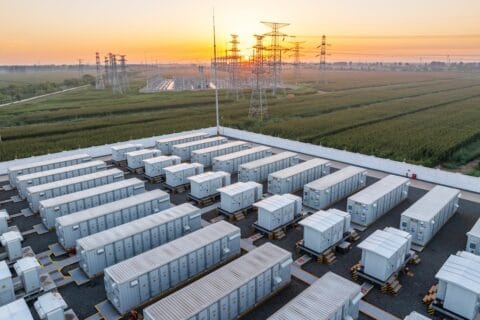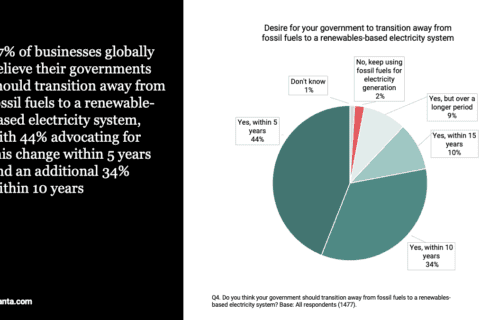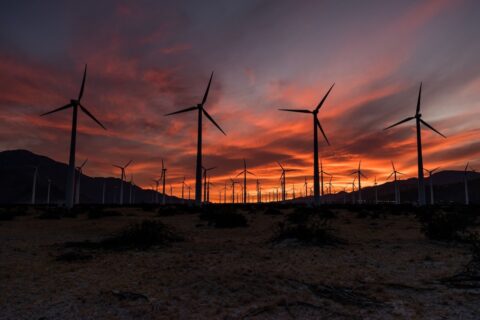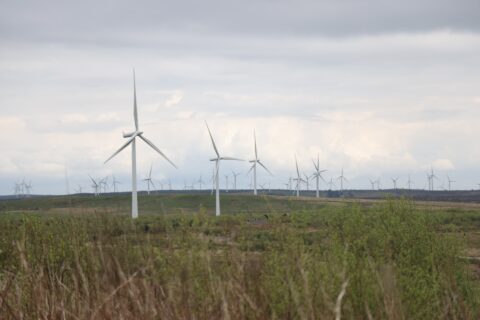
In a bid to boost and inform more sustainable strategies for ‘building back better’, the Biofuture Platform, a 20-country, multi-stakeholder initiative, has launched a set of five voluntary principles. These are intended to offer guidance to governments and policymakers around the world on the need to promote the sustainable bioeconomy in both short-term relief packages and broader post-COVID economic recovery programmes.
The Principles have the potential to transform industries ranging from transport (including aviation and maritime) to agriculture and have been designed to create jobs. The five Principles have the support of the 20 Biofuture Platform member countries, and were developed following consultations with policymakers, industry experts and international organisations such as the International Energy Agency (IEA), the International Renewable Energy Agency (IRENA) and the Global Bioenergy Partnership (GBEP).
One of the most labour-intensive energy industries, already employing around three million people worldwide, bioenergy is expected to play a key role in the decarbonisation of the energy sector. However, it is also one of the sectors most affected by the COVID crisis. For example, earlier IEA analysis has estimated that transport biofuels production, expected to continue to grow before the crisis, could in fact decline as much as by 13% in 2020, the first decrease in output in two decades.
At the same time, the IEA Sustainable Recovery plan shows that biofuels could be a very cost-effective way to create employment in the energy sector, with the second-largest number of jobs (15-30) created per million dollars of spending.
In terms of post-COVID response, one innovation that exemplifies the application of bioeconomy principles is the potential for polypropylene used to make PPE to be broken down into biofuels and employed in place of non-sustainable fossil fuels.
The five Principles are:
- Do not backtrack: Ensure continuity and long-term predictability of bioenergy, biofuels, and bio-based material targets and existing policy mechanisms that have proved successful;
- Consider short-term COVID support for producers: Where appropriate, address short-term challenges for bioenergy and bio-based materials industries in the context of relief packages related to COVID-driven economic losses;
- Reassess fossil fuel subsidies: Take advantage of a low oil-price environment to reassess fossil-fuel subsidies for a fairer playing field;
- Build Back Better with Bio: Where appropriate, integrate the bioeconomy sector as part of broader recovery programmes, for example by requiring bioeconomy investments or targets as part of aid and recovery packages for specific sectors such as transport and chemicals; and
- Reward sustainability: Integrate sustainability rewarding mechanisms into policy frameworks, promoting positive externalities in the production and use of bio-based fuels, chemicals and materials.
The Principles are non-binding and non-prescriptive, with member countries encouraged to implement them in accordance with broader sustainability initiatives and economic recovery programmes. A number of countries have already implemented or are considering new policies in line with the Principles.
These early adopters include Brazil’s RenovaBio and Canada’s Clean Fuels Standard programmes, which incorporate positive externalities of biofuels into market-based mechanisms. The US also recently revealed plans for a Higher Blends Infrastructure Incentive Program, to reinforce biofuel distribution infrastructure.
Other regions have also set ambitious targets. For example, India plans to scale up bioenergy use including 20% sustainable ethanol in gasoline by 2030 and the EU also has established policy ambitions to boost advanced biofuels by 2030 in the Renewable Energy Directive (REDII).
Some countries have included sustainable fuels in their economic recovery measures. France, for instance, announced an important support package to the airline industry, which incorporates sustainable aviation fuel targets.
Commenting on the development of the Principles, Dr Fatih Birol, Executive Director of the International Energy Agency (IEA), which facilitates the Biofuture Platform, said:
“Bioenergy is the overlooked giant of the renewable energy sector and will be paramount to a successful global energy transition. But its growth is currently not on track to meet sustainable development goals. It is critical that governments incorporate bioenergy in their COVID economic recovery plans, promoting jobs in the sector and ensuring its considerable potential does not remain untapped”.
Policymakers may apply the guidelines in relation to several sectors as they consider recovery packages. The impact of the crisis on the bioeconomy covers a range of industries, both directly and indirectly.
As transport accounts for significant share of green finance in recovery packages, funding targeted to innovation could link to the development of new bioenergy technology solutions for long-distance transport and industry, which would in turn create jobs.
Globally, whilst transport biofuel production reached a record 162 billion litres in 2019, or 2.8 million barrels per day, it is expected that production will contract by by 20 billion litres (13%) in 2020, returning to 2017 output levels. Prior to the start of the Covid‑19 crisis, output had been anticipated to increase by a further 5 billion litres (3% y-o-y) in 2020.
Additional opportunities lie in biogas and biomethane, which can play a key role in the transformation of the global energy system, ensuring resources are continuously used and reused to meet rising demand for energy services, while delivering wider environmental benefits. Realising the multiple benefits of biogas and biomethane requires co‑ordinated policymaking across energy, transport, agriculture, environment, and waste management.
The Biofuture Platform and IEA
The Biofuture Platform is a government-led, multi-stakeholder initiative designed to take action on climate change and support the Sustainable Development Goals by promoting international coordination on the sustainable low-carbon bioeconomy. It was launched in Marrakesh at the 2016 COP 22 climate talks. Since February, 1, 2019, the IEA has been the Facilitator (Secretariat) of the initiative.
The Biofuture Platform has 20 member countries: Argentina, Brazil, Canada, China, Denmark, Egypt, Finland, France, India, Indonesia, Italy, Morocco, Mozambique, the Netherlands, Paraguay, the Philippines, Sweden, the UK, USA and Uruguay. As a multistakeholder initiative, a number of international organisations, academia, and private sector associations are also involved and engaged as official partners.
Headquartered in Paris, IEA works to ensure reliable, affordable and clean energy for its 30 member countries and beyond. Its mission is guided by four main areas of focus: energy security, economic development, environmental awareness and engagement worldwide.
Further Reading:
- More about the Biofuture Platform;
- More on the work of the International Energy Agency (IEA) in general.
>>> Do you have sustainability news to broadcast and share? If you would like to see it featured here on SustMeme, please use these Contact details to get in touch and send us your Press Release for editorial consideration. Thanks.






